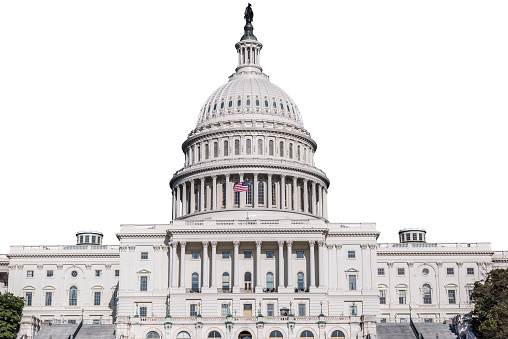 Democratic candidates won both of Georgia’s Senate seats earlier this week, putting the upper chamber of the U.S. Houses of Congress into deadlock. This deadlock will be broken by the Democratic Vice-President’s casting vote, which essentially means that the Democrats will be able to exert a wafer-thin control of the Senate.
Democratic candidates won both of Georgia’s Senate seats earlier this week, putting the upper chamber of the U.S. Houses of Congress into deadlock. This deadlock will be broken by the Democratic Vice-President’s casting vote, which essentially means that the Democrats will be able to exert a wafer-thin control of the Senate.
As Democrats will control the Presidency from 20th January when Vice-President Joe Biden is sworn in as the 46th President of the United States, and as they already control the House of Representatives, it means that the entire federal legislature and executive will be controlled by Democrats, who will therefore have a better chance of being able to implement their policies and appointments.
What Will Democratic Control Mean for Markets?
Analysts were mostly expecting that Democrats would not gain control of the Senate. Immediately following the confirmation of the result, the Dow Jones 30 Index rose slightly, while the tech-based NASDAQ 100 fell, while the S&P 500 also dropped, but by less. This suggests that the larger “old economy” corporates might be better investments over the near term than tech stocks or smaller, “new economy” companies.
There is historical evidence that Wall Street prefers a split government between the Presidency and Congress (or at least the Senate) than single party control of both branches of the federal government. U.S. stock markets have tended to outperform in the past after a round of elections resulting in split control. This suggests that although we may see the U.S. market rise in 2021, the rise might be less than expected, and be led by larger old-fashioned companies.
There has been a feeling that Democratic control might result in more governmental investigation and regulation of large technology companies, which are quoted on the NASDAQ 100 stock index. This may explain why we saw the NASDAQ fall on Wednesday. It is worth keeping an eye on how the technology index performs over the coming days.
Democratic control of the Senate makes an enlargement of fiscal stimulus and budget deficits more likely. This may in fact be more positive for stock markets as stimulus tends to debase the Dollar which paradoxically will be reflected as a rise in the valuation of the stock market, at least in U.S. Dollar terms. However, these considerations are also causing an increase in treasury yields, with the 10-year U.S. treasury hitting a 1% yield for the first time since last March.
Bottom Line
Investors and traders may be wise to adjust their expectations of the U.S. stock market and Dollar slightly downwards for the 2021 outlook following Democratic control of the U.S. Senate. However, it is worth bearing in mind that the Democrats control the Senate by the slimmest possible majority, meaning they are not likely to win every major vote on every pressing issue, so the adjustment may be relatively small.
